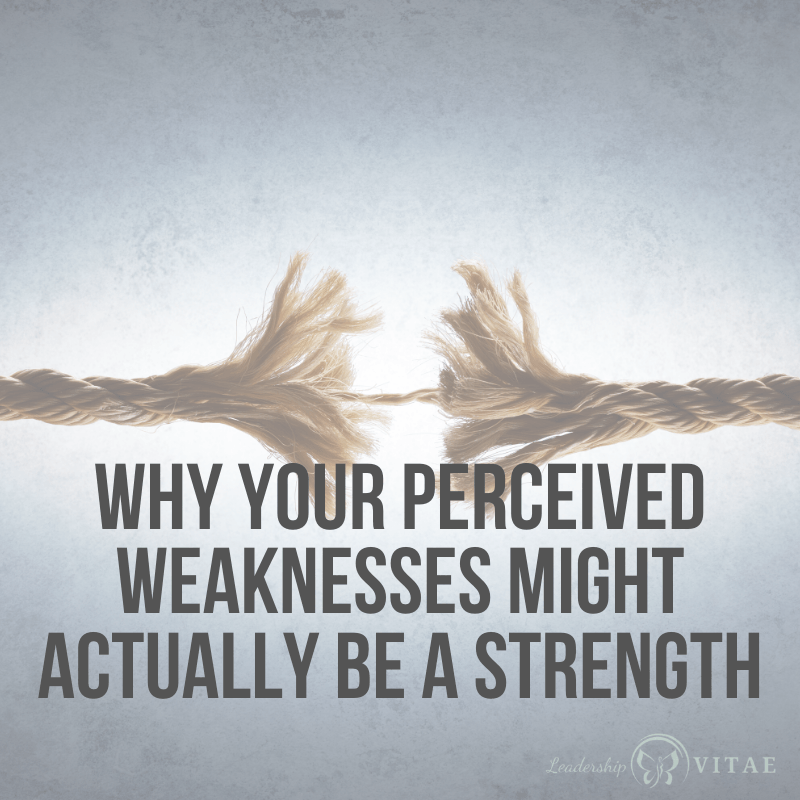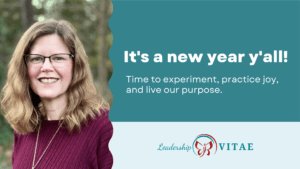
Our abilities fall on a spectrum. If we plotted everything we are capable of, everything we do and how we do it, they would all fall on some sort of range from amazing to good to meh or blah.
No one can be perfect at every (any) thing. Yet we each have our unique gifts to offer the world.
There is conflicting advice out there. Our strengths and weaknesses make up who we are today. By investing in those strengths or weaknesses, our potential for who we can be is limitless. But which to choose?
Invest in your strengths
One school of thought is that we should focus less on our weaknesses, and instead focus on being really great at our strengths. We cannot ignore our weaknesses, but we can shore them up. Surround ourselves with those who have complimentary skills. Those that offset our weaknesses and play up our strengths.
While this is sound advice in theory, we must be careful in practice. Any strength, taken to extreme, can become a weakness.
For example, I have always been a problem solver. When an organization has a nasty problem and no idea how to solve it, I’m the first one to volunteer to tease it apart.
The joy I find in problem solving is both a strength and a hindrance as a leader. If I am not careful, it is easy for folks to bring me every possible type of challenge, including those they can solve for themselves. I am here to help them build problem solving muscles, including the risk taking, mistakes, and pitfalls that come with growth.
If we focus on our strengths and get too attached to them, they can be a detriment to the growth of those around us.
Invest in your weaknesses
The other prevailing thought is that we identify the areas where we struggle and invest in those. We may identify those through personal experience, feedback, reviews, or mentoring/coaching.
Improvement is never one and done. We must learn, invest time in making changes, and then evaluate those changes over time to determine progress. Sometimes it can be difficult to measure those improvements fairly.
Since progress is rarely dramatic, those around us may not be able to see it without some distance to the change. We may struggle with the same challenge.
For a long time, I struggled in connecting with others. First impressions were a challenge, though over time I could develop deep, trusting relationships. Eventually, I identified empathy and compassion as focus areas to connect earlier with new teams, peers, and partners.
For years, through new roles, teams and organizations, I have studied and practiced. Tried new things and attempted to build my skills. I received improved input in some areas and continued to focus on areas of opportunity.
I have been attached to these development opportunities for a long time and brought them with me to my most recent role. Until I discovered something that gave me a new perspective.
Situational strengths and weaknesses
In my newest role, I thought I was prepared. I played to my strengths and knew my weaknesses. Continued to identify and work on them publicly. Downplayed my strengths were I needed my team to grow.
One day, one of my leaders complimented me. He said that he learned something from me that day about empathy. About how much I care about my people, even though I show it in a different way than he does.
He’s known as our most empathetic leader, and I immediately demurred, saying I still had so much more room for growth.
We ended up having an amazing conversation. I still receive feedback that demonstrates I have opportunity, yet someone with high empathy regards me as someone he can learn from. How can both of these be true?
What I concluded was that I had been playing a tape in my mind: “I need to work on my empathy.” It has been a mantra for years. As a result, I failed to realize how much I had grown. At the same time, what my empathy looks like is different from others. I had been comparing myself to someone else, rather than measuring myself against my own yardstick.
It is possible that we can be good at something situationally. That for one group, person or organization, our abilities are an exact match. For others, they don’t quite fit.
Where do we focus when feedback conflicts?
The challenge with feedback about our opportunity areas is that it can be conflicting. We are rarely brilliant at one thing and horrible at another. We frequently have some skill in areas where we still have opportunity.
There are two questions to ask. The first is, what is the measure we are being held against? The second, is our current level of performance sufficient for where we are now and where we want to head next?
We must get input from diverse perspectives to have a sense of where our reality is. For every one person that thinks we are struggling with something, there are two others that might find it a strength.
We must put all feedback into perspective against what is needed for our current and next roles. We must also appreciate that everyone has a different yardstick.
When we get conflicting feedback, it’s easy to feel torn. Either become discouraged or ignore it. Neither of these are good options.
Establish a commitment to growth
Rather than put our head in the sand or give up, we can commit to growth through learning and curiosity. Commit to being the best version of ourselves we can, knowing we are perfectly flawed humans.
There will always be an area of opportunity. We are all a work in progress. There will be a new situations, people, or challenges. Somewhere our strengths fail us, and our perceived weaknesses work just fine.
Try to understand why something worked in one situation and didn’t work in another. Read, listen, and investigate.
Rather than get discouraged by conflicting feedback, embrace it. It means you’re doing something right in some situations. Find out what those are and how to replicate them. If there is a struggle somewhere else, what might that be? How might you improve?
Embracing learning and curiosity is the best formula for taking in feedback, putting it into perspective, and creating actionable steps to make improvements.








